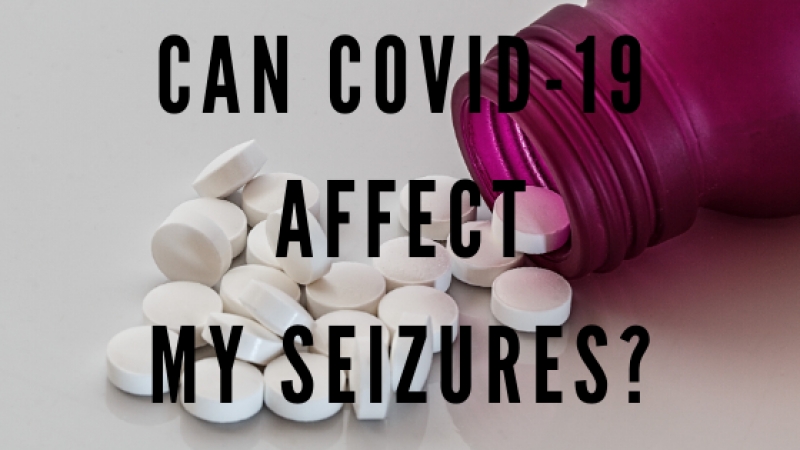Can COVID-19 Affect my Seizures?

Many of us may have questions about the ever-evolving situation involving the COVID-19 pandemic. For questions that have to do with epilepsy and seizures, we are here to help.
In today’s blog post, we will go over answers to the question “Can COVID-19 affect my seizures?”
Before we go into this information, we wanted to let you know that the BC Ministry of Health has developed an online assessment tool that will tell you what you need to do based on your symptoms so check out the BC COVID-19 Self-Assessment Tool here.
When a person with epilepsy gets ill, they may notice a change in their seizures. Some aspects associated with COVID-19 that could lead to an exacerbation in seizure symptoms can include:
- Illness or fever due not only to the COVID-19 but to other physical or emotional stressors
- Lack of sleep or the inability to sleep well
- Low blood sugar levels due to not eating normally
- Dehydration due to not drinking enough water
- Worry, anxiety or stress about COVID-19
- Worry, anxiety or stress about seizures
In order to try and reduce seizures, whether or not you have COVID-19, it is important to ensure that you are achieving proper nutrition by eating healthy foods, preventing dehydration by drinking enough water and getting adequate sleep by trying to get at least 8 hours of sleep a night.
Additionally, as missing a dose of medication is one of the main triggers for seizures, ensure you are taking your medication on time and at the correct dosage.
Finally, to prevent worry, anxiety or stress, you may choose to employ some self-care techniques, which you can learn more about in a past BC Epilepsy Society blog post here.
If you develop COVID-19 and are noticing a change in your seizures, here are some important tips:
- Call your healthcare provider immediately
- Do not go into the office of your healthcare provider without calling them beforehand as you could put others at risk of developing COVID-19
- Do not go into the Emergency Room of a hospital unless it is actually an emergency as you could put others at risk of developing COVID-19
- If you are worried about going to the doctor’s office or a hospital, ask your healthcare provider about the possibility of telehealth visits, either on the phone or on videoconference
- Ask your healthcare provider if it is safe for you to postpone the appointment and reschedule it for a later date
Please note that if you suspect that you have COVID-19, you should self-quarantine yourself in your home for 14 days to prevent the spread to others. If you have epilepsy and need to self-quarantine, please ensure that you have enough anti-epilepsy medication to last you for the entire self-quarantine period.
We hope that the information contained in this blog has helped to answer some of your questions. For more information on COVID-19, check out our blog post on the subject here. Up-to-date information on COVID-19 can be found from the Government of Canada here.





